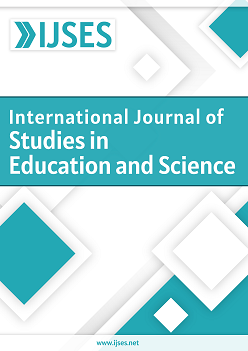A Conceptualization of True Liberator Pedagogy: Foundations of a Transformative Educational Approach
DOI:
https://doi.org/10.46328/ijses.118Keywords:
Pedagogy of the Oppressed, True Liberator Pedagogy, Transformative Education, Teaching ModelsAbstract
The integration of True Liberator Pedagogy (TLP) to blending of critical pedagogy, Design Thinking (DT), and transformative learning theories offer a strategy to tackle the changing demands of contemporary education. This educational approach is influenced by Freire, Vygotsky, Dewey, and other modern educational theorists, advocating for a move away from traditional teaching methods towards 'action-oriented learning' as a different approach to traditional didactic methods. TLP focuses on fostering critical awareness, compassion, and interactive learning to transform education beyond academic pursuits, aiming for societal empowerment and creativity. This approach boosts academic achievement and promotes the growth of socially conscious, compassionate, and creative individuals. TLP's approach to curriculum design promotes active engagement, practical implementation, and deep contemplation, in accordance with the needs of a world that is increasingly integrated and interconnected. The practical application of TLP is discussed, suggesting that it has the potential to revolutionize education and promote a fairer society.References
Takona, J.P. (2024). A conceptualization of true liberator pedagogy: Foundations of a transformative educational approach. International Journal of Studies in Education and Science (IJSES), 5(3), 327-353. https://doi.org/10.46328/ijses.118
Downloads
Published
Issue
Section
License
Articles may be used for research, teaching, and private study purposes. Authors alone are responsible for the contents of their articles. The journal owns the copyright of the articles. The publisher shall not be liable for any loss, actions, claims, proceedings, demand, or costs or damages whatsoever or howsoever caused arising directly or indirectly in connection with or arising out of the use of the research material.
The author(s) of a manuscript agree that if the manuscript is accepted for publication in the International Journal of Studies in Education and Science (IJSES), the published article will be copyrighted using a Creative Commons “Attribution 4.0 International” license. This license allows others to freely copy, distribute, and display the copyrighted work, and derivative works based upon it, under certain specified conditions.
Authors are responsible for obtaining written permission to include any images or artwork for which they do not hold copyright in their articles, or to adapt any such images or artwork for inclusion in their articles. The copyright holder must be made explicitly aware that the image(s) or artwork will be made freely available online as part of the article under a Creative Commons “Attribution 4.0 International” license.

This work is licensed under a Creative Commons Attribution-NonCommercial-ShareAlike 4.0 International License.





